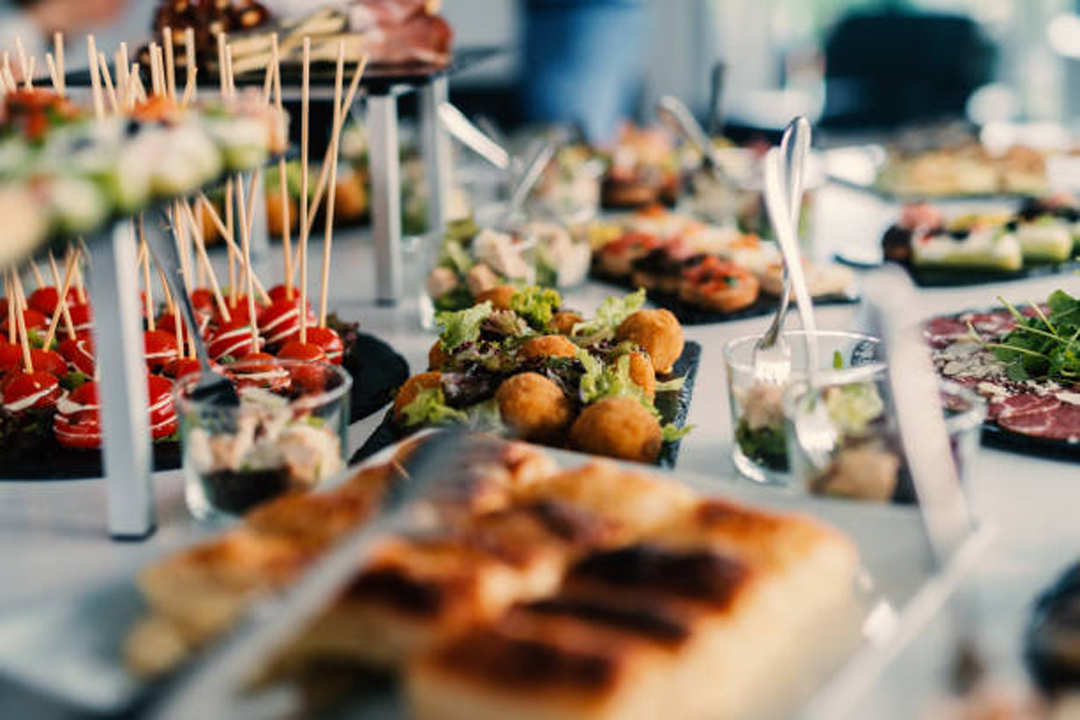
Food hygiene is paramount in event catering. Whether it’s a wedding, corporate event, or a music festival, ensuring the safety and cleanliness of the food being served is essential. In this guide, we’ll delve into what food hygiene entails, why it’s crucial in event catering, and what to expect from food hygiene practices across different types of events.
What is Food Hygiene?
Food hygiene refers to the practices and procedures that ensure food is safe to eat. It involves proper handling, preparation, and storage of food to prevent contamination and the spread of foodborne illnesses. This includes maintaining cleanliness in food preparation areas, using safe cooking temperatures, and preventing cross-contamination between raw and cooked foods.
Food hygiene is not only about cleanliness; it’s a comprehensive approach to ensuring the safety of the food we consume. Beyond just washing hands and surfaces, it encompasses understanding and implementing principles such as the HACCP (Hazard Analysis and Critical Control Points) system, which identifies potential hazards in food production and establishes control measures to mitigate risks.
How Important is Food Hygiene in Event Catering?
Food hygiene is of utmost importance in event catering for several reasons. Firstly, serving contaminated food can lead to foodborne illnesses among guests, which can not only ruin the event but also pose serious health risks. Secondly, poor food hygiene can tarnish the reputation of the catering business, leading to loss of customers and revenue. Lastly, ensuring food hygiene demonstrates professionalism and care for the well-being of guests, enhancing the overall experience of the event.
The significance of food hygiene in event catering cannot be overstated. Beyond the immediate health risks posed by foodborne illnesses, which can quickly escalate in crowded event settings, there are broader implications for both the catering business and the event itself. A single instance of food contamination can result in reputational damage that is difficult to repair, potentially leading to the loss of future business opportunities and partnerships.
Moreover, in today’s interconnected world where customer reviews and social media can make or break a business, the consequences of a food hygiene mishap can reverberate far beyond the event itself. Therefore, investing in robust food hygiene practices isn’t just about meeting regulatory requirements; it’s a strategic imperative for safeguarding both public health and the long-term success of the catering enterprise.
Food Hygiene Practices Across Events
When it comes to food hygiene, different types of events present varying challenges and requirements. From elegant weddings to bustling music festivals, each event demands meticulous attention to food safety and cleanliness.
Here’s what to expect from food hygiene practices in a diverse range of events:
- Weddings: Weddings often involve serving food to a large number of guests. Food hygiene practices in wedding catering typically include rigorous cleaning of utensils and equipment, ensuring proper food storage temperatures, and implementing measures to prevent contamination during food preparation and service.
- Corporate Events: Corporate events may range from small meetings to large conferences, each with its own catering needs. In corporate event catering, emphasis is placed on providing safe and hygienic food options that cater to dietary preferences and restrictions. This may involve offering allergen-free options, labeling food items clearly, and maintaining strict hygiene standards in buffet setups.
- Music Festivals: Music festivals present unique challenges in terms of food hygiene due to the outdoor setting and high volume of attendees. Food vendors at music festivals must adhere to strict food safety and hygiene practices to prevent foodborne illnesses. This includes regular handwashing, proper waste disposal, and safe food handling practices to minimize the risk of contamination.
- Outdoor Events: Outdoor events pose unique challenges for food safety and hygiene due to the makeshift setups and environmental factors. Vendors must ensure proper infrastructure, temperature control, safe food handling practices, cleaning, and sanitization to prevent foodborne illnesses and ensure the safety of attendees.
Food Hygiene and Safety Courses
To ensure that event catering professionals are equipped with the necessary knowledge and skills to maintain food hygiene standards, it is advisable to undertake a food hygiene and safety course. These courses cover topics such as food safety regulations, proper food handling techniques, and sanitation practices. By completing a food hygiene course, catering staff can demonstrate their commitment to upholding the highest standards of food safety and hygiene.
Investing in food hygiene and safety courses is not only a proactive measure but also a wise investment in the success of event catering businesses. These courses not only provide essential knowledge about food safety regulations and best practices but also offer practical insights and real-world scenarios that equip catering professionals to handle various challenges effectively.
Moreover, certifications obtained from reputable food hygiene courses serve as a badge of credibility, reassuring clients and event organizers that the catering team is well-trained and capable of delivering safe and hygienic food services.
Take Action for Your Event’s Success
In conclusion, ensuring food hygiene in event catering is essential for the health and satisfaction of guests, as well as for the reputation of the catering business. By implementing stringent food safety and hygiene practices, catering professionals can guarantee the success of every event they cater to. From maintaining cleanliness in food preparation areas to preventing cross-contamination and adhering to safe cooking temperatures, attention to detail is key.
Remember, prioritizing food hygiene isn’t just about meeting regulatory requirements; it’s about demonstrating professionalism and care for the well-being of guests. Take the first step towards enhancing your skills and knowledge by enrolling in a food hygiene and safety course today, and ensure the success and credibility of your catering business.
Comments
comments